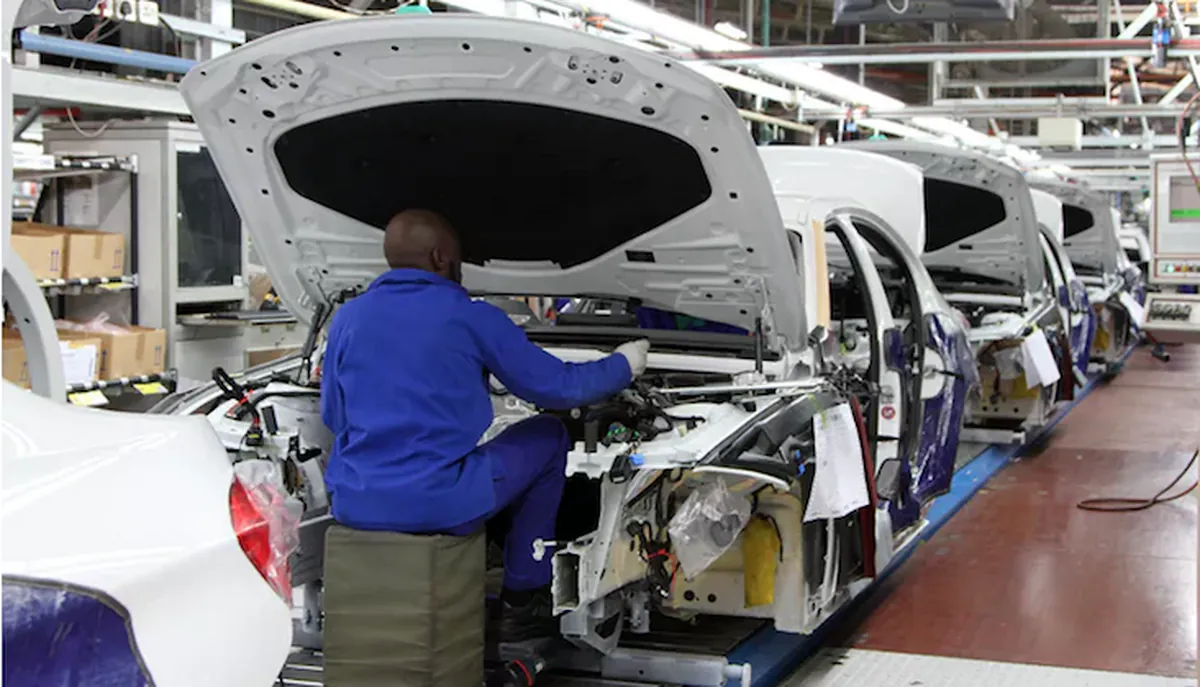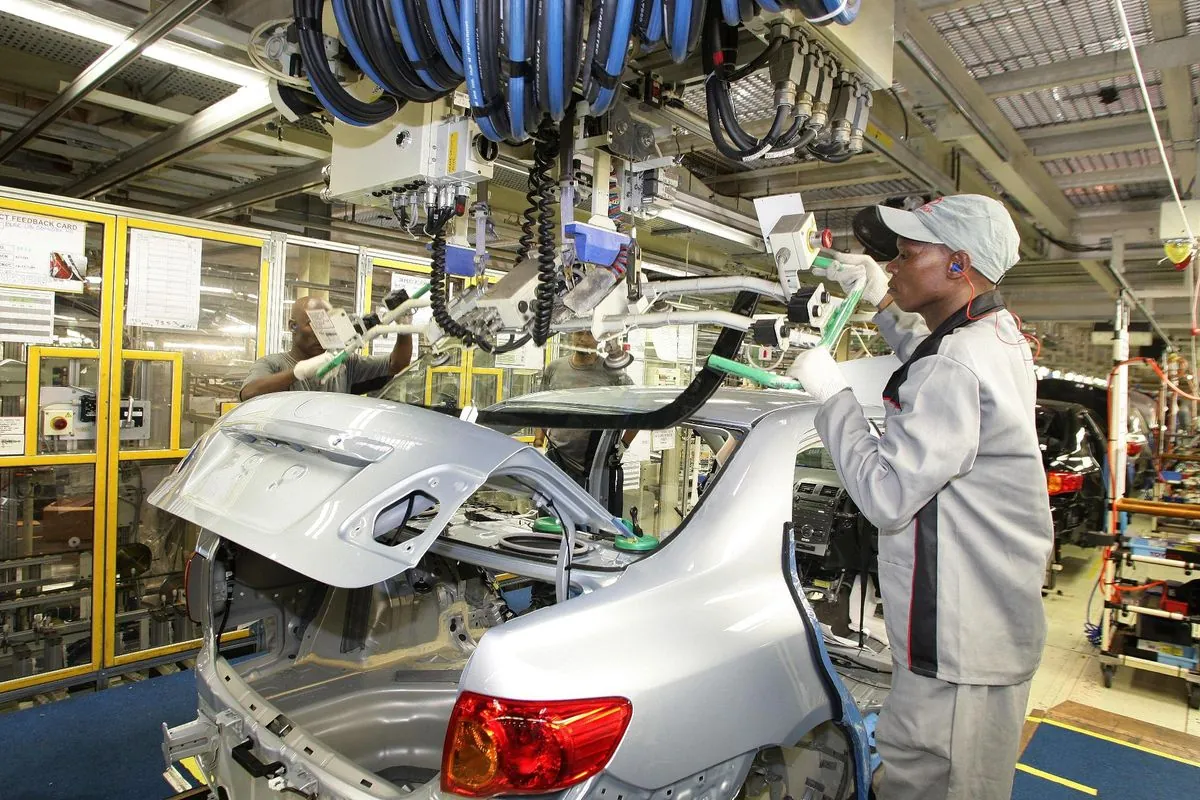South African Manufacturing Rebounds in September, PMI Shows Growth
South African manufacturing activity increased in September, with the Absa PMI rising to 52.8. The sector shows signs of stabilization, but employment challenges persist amid improved demand and recent interest rate cuts.

South Africa's manufacturing sector displayed signs of recovery in September 2024, according to the latest Absa Purchasing Managers' Index (PMI) survey. The index, a key indicator of manufacturing activity, rose to 52.8 points from 43.6 in August, surpassing the 50-point threshold that signifies growth.
The 9.2-point increase in September more than compensated for the 8.8-point decline observed in August, suggesting a significant turnaround in the sector's performance. This rebound comes as a positive development for South Africa's economy, which has been grappling with various challenges in recent years.
Absa Group Limited, one of Africa's largest financial services groups and sponsor of the survey, noted improvements in both domestic and export demand. The recent interest rate cut by the South African Reserve Bank (SARB) has contributed to expectations of a more favorable demand environment in the coming months.
"The positive PMI results suggest that the manufacturing sector is stabilising after a turbulent period, although challenges remain, particularly in employment."
While the manufacturing sector shows signs of stabilization, it continues to face hurdles, especially in terms of employment. This is particularly concerning given South Africa's persistently high unemployment rate, which has often exceeded 25% in recent years.
The manufacturing industry, contributing approximately 13% to South Africa's GDP, plays a crucial role in the country's economy. As the second-largest economy in Africa by nominal GDP, South Africa's economic indicators are closely monitored by policymakers and investors alike.

The PMI survey, which covers five key areas including new orders, inventory levels, production, supplier deliveries, and the employment environment, provides valuable insights into the sector's health. A PMI reading above 50 indicates expansion compared to the previous month, making September's figure of 52.8 a positive signal for the industry.
South Africa's manufacturing sector encompasses various industries, including automotive, chemicals, and textiles. These export-oriented industries are particularly sensitive to global economic conditions and exchange rate fluctuations. The recent improvements in both domestic and export demand suggest a potentially more favorable economic environment.
The country's economic policies aim to promote industrialization and increase manufacturing output, recognizing the sector's importance for job creation and overall economic growth. However, the manufacturing industry has faced numerous challenges in recent years, including power shortages and global economic uncertainties.
The volatility in PMI figures reflects both domestic and international economic factors. While September's rebound is encouraging, it's important to note that the sector's recovery may still be fragile. The ongoing structural issues in South Africa's economy and the lingering effects of the COVID-19 pandemic continue to pose challenges.
As South Africa's manufacturing sector navigates these complex economic conditions, the positive PMI results offer a glimmer of hope. However, addressing persistent employment challenges and fostering sustainable growth remain critical priorities for policymakers and industry leaders alike.


































